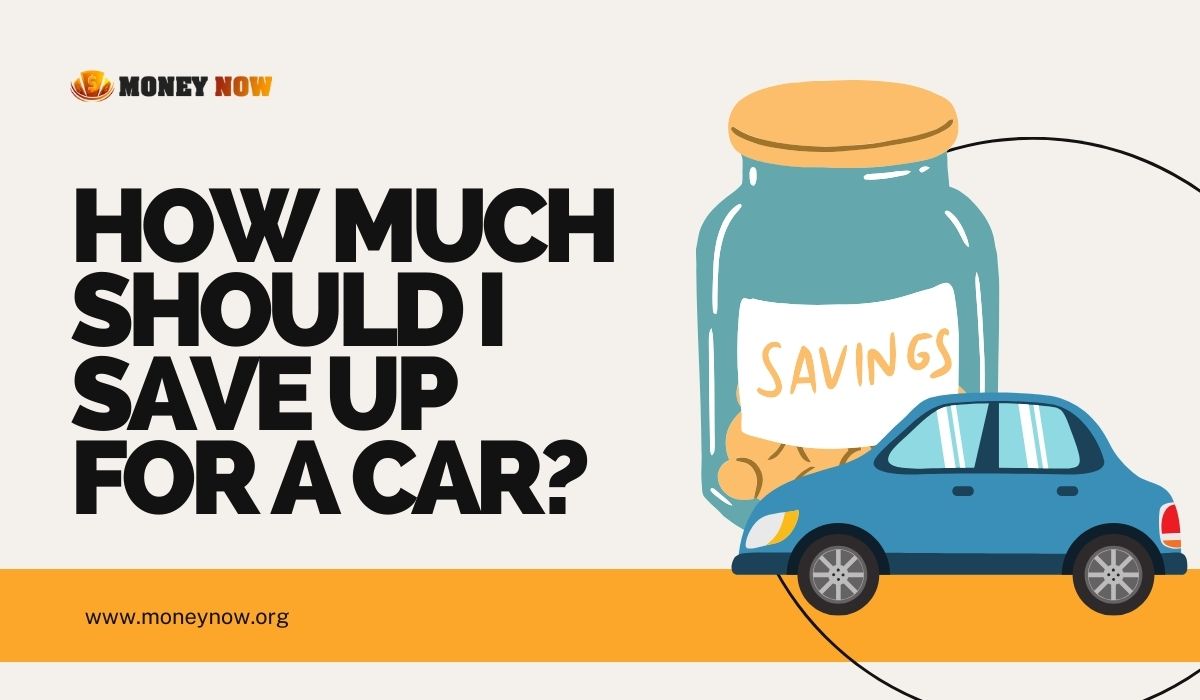
In an era where the sticker prices of cars continue to soar, preparing financially for a new or used vehicle has never been more critical. With new car prices nudging the $40,000 mark on average and used vehicles not far behind, saving up for a car can significantly reduce the amount you need to borrow, lessening your interest burden and putting you in a stronger negotiating position at the dealership.
So, how much should you save up for a car? You should aim to save at least 20% of the car's purchase price for a new car and 10% for a used car as a down payment. Additionally, factor in extra funds for taxes, fees, and other expenses.
This guide demystifies the process, offering practical advice on setting a budget, calculating a down payment, and managing additional costs associated with purchasing and owning a vehicle.
Transitioning from understanding the importance of financial preparation for a car purchase to putting it into practice begins with determining exactly how much you need to save. This crucial step involves more than just eyeing the sticker price of your dream car; it necessitates a deep dive into your personal finances, future vehicle expenses, and the broader implications of your purchase decision.
By assessing your budget, considering the full spectrum of ownership costs, and setting realistic savings goals, you can establish a solid financial foundation that supports not just the acquisition, but the ongoing enjoyment of your new or used vehicle. Let's explore how to calculate a target savings amount that aligns with your financial reality and car buying aspirations.
First and foremost, setting a realistic car buying budget is essential. Your budget should reflect your financial situation and goals. The rule of thumb, suggested by financial experts, is that the total value of vehicles in your household should not exceed half of your household's annual net income. This guideline helps ensure that your car purchase does not jeopardize your financial health or your ability to meet other financial goals.
A substantial down payment is your first line of defense against the rising costs of financing a car. Aim to put down at least 20% on new cars and 10% on used ones. This initial investment helps reduce your loan amount, secures better interest rates, and leads to more affordable monthly payments. Additionally, consider saving a little extra for sales tax, registration, and other fees that accompany a car purchase.
Beyond the purchase price, owning a car comes with recurring costs, including insurance, maintenance, fuel, and occasional repairs. Financial advisors often suggest allocating a portion of your budget to cover these ongoing expenses. For example, setting aside $100 a month for maintenance can help cushion the financial impact of unexpected repairs, especially for vehicles with higher mileage.
With your car budget and down payment target in hand, it's time to develop a savings plan. Determine your total savings goal and how much you can realistically set aside each month. Opening a dedicated savings account for your car fund can psychologically boost your saving efforts by keeping these funds separate from your regular spending money.
Automation is a powerful tool in achieving your car saving goals. By setting up automatic transfers from your paycheck to your savings account, you ensure that a portion of your income is consistently allocated to your car fund without the temptation to spend it elsewhere.
If your budget doesn't leave much room for savings, consider ways to increase your income through side hustles or by selling personal items. Likewise, reevaluate your spending to identify areas where you can cut back. Simple changes, such as reducing dining out or canceling unused subscriptions, can free up more money for your car savings.
While paying in cash is ideal, financing a car is a reality for many. If you choose to finance, familiarize yourself with the terms and shop around for the best rates. Remember the 20/4/10 rule: aim for a down payment of at least 20%, finance the car for no more than four years, and ensure your total car-related expenses don't exceed 10% of your gross income.
Yes, budget for sales tax, registration fees, insurance, maintenance, and fuel costs, as these can significantly add to the total ownership cost.
While some lenders offer no down payment options, making a down payment can reduce your monthly payments and interest costs over the life of the loan.
Set a savings goal, open a dedicated savings account, automate your savings, cut unnecessary expenses, and consider earning extra income through side hustles.
Paying cash eliminates interest costs and financing fees, but financing can be a good option if you secure a low-interest rate and can comfortably afford the payments.
Consider using the 20/4/10 rule as a guideline: a minimum of 20% down, finance for no more than 4 years, and keep total car expenses under 10% of your gross income.
So, how much should you save up for a car? Saving up for a car is a significant financial endeavor that requires careful planning and discipline. By determining a realistic budget, calculating a sufficient down payment, and creating a robust savings plan, you can make your car-buying experience less stressful and more rewarding. Remember, the key to a successful car purchase is not just finding the right car but also ensuring it fits within your financial landscape.
Learn more about jobs that pay the most with no experience with our comprehensive guide. Discover more tips and helpful resources on financial management by visiting Money Now.
